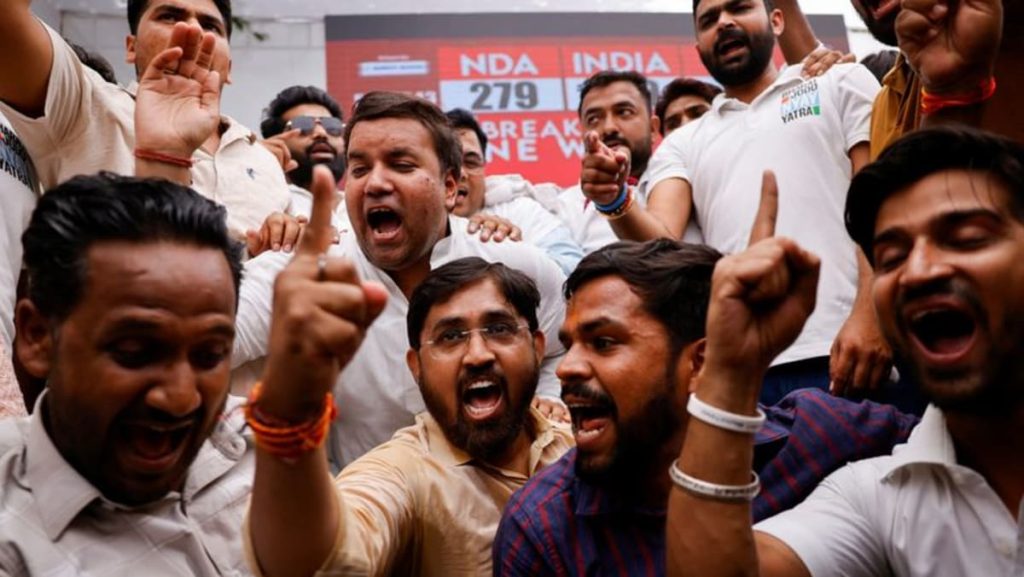India’s political landscape is expected to change significantly in the coming years, with a return to coalition partners and alliance politics. According to Ms Singh, the era of Prime Minister Modi has brought about a shift towards cult of personality politics and the concentration of power in New Delhi. However, with the rise of coalition partners like the Telugu Desam Party and Janata Dal (United), regional politics is likely to take on a more prominent role at the national level. This change could challenge Mr Modi’s style of aggressively centralizing power, raising questions about how he will navigate this new political landscape.
It will be uncharted territory for Mr Modi as he faces the need to work with coalition partners who have significant influence in different regions of India. Mr Sircar raises concerns about whether Mr Modi will be able to keep his coalition together, given his history of centralizing power and not always playing nice with partners. The formation of new state institutions to maintain his coalition’s unity is a strategy that Mr Modi may implement, as he has done against his opponents in the past. This potential change in India’s political dynamics could bring about a new era of governance that requires a shift away from the current centralized power structure.
The role of the opposition in the next government is another critical factor that could shape India’s political future. With a lack of parliamentary or electoral opposition in recent years, citizens have had to take to the streets to voice their grievances against the BJP. Mr Sircar suggests that the return to coalition politics could create opportunities for formal parliamentary procedures to address these grievances. This shift could lead to a strengthening of India’s parliamentary democracy, as citizens are able to engage more effectively with the political process through their elected representatives.
Overall, the changes in India’s political landscape signify a departure from the era of Prime Minister Modi and the dominance of centralizing power. The return to coalition politics and the rise of regional influence could reshape the traditional norms of Indian governance, challenging the current power dynamics in New Delhi. With the potential for a more decentralized political system and increased parliamentary engagement, India’s democracy may experience a revitalization that allows for greater representation of diverse interests and voices. The coming years will likely see a redefinition of India’s political landscape, with implications for governance, power dynamics, and democratic participation at both the national and regional levels.
In conclusion, the shift towards coalition politics and the potential for increased regional influence in India’s political landscape represent a significant departure from the era of centralized power under Prime Minister Modi. The challenges of navigating these new dynamics raise questions about how the government will maintain unity among coalition partners and address the concerns of citizens who have been marginalized in recent years. The role of the opposition in this evolving political context could provide opportunities for formal parliamentary procedures to redress grievances and strengthen democratic norms. As India enters this period of uncertainty and change, the potential for a more inclusive and representative political system offers hope for a revitalized democracy that can better serve the needs and interests of its diverse population.


